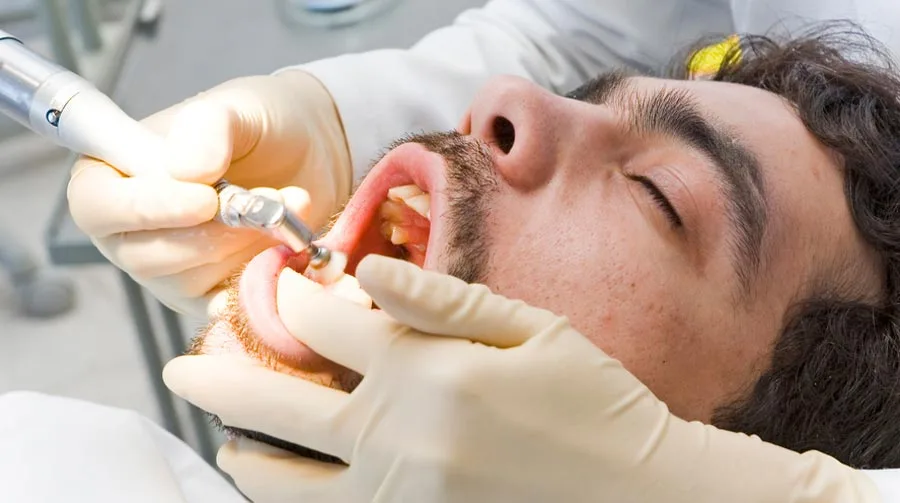Looking at a Telltale Sign of Cocaine Abuse and Treatment Options
Cocaine, although on the decline, is still notorious for its immediate and intense effects on the body and mind. Among the myriad of physical and psychological signs of cocaine abuse, one particularly distinctive red flag is “cocaine jaw.”
This term describes the involuntary clenching or grinding of teeth that often occurs as a result of muscular spasms or intense energy. This article explores the stigma known as coke jaw, in addition to the collateral damage it causes.
We also point out several other significant warning signs to look for if you suspect someone you know or love is suffering from a drug addiction involving cocaine. And remember you can reach out at any time to our team at South Shores for additional support to quit cocaine effectively!
Cocaine Addiction and Jaw Pain
Although coke jaw may be the most recognizable sign – and what most are alluding to when mentioning the negative impact of cocaine on the jaw muscles. However, cocaine jaw isn’t the only condition that causes jaw pain and deterioration when someone abuses cocaine.
When you snort cocaine, the blood vessels in the nose and mouth are heavily impacted, causing constricting that becomes noticeably painful. This, combined with the nervous system overstimulation leads to the incessant grinding of the teeth.
Over time, the constricted blood vessels are doing additional damage beneath the surface. When blood doesn’t flow properly as a result of the constriction, not only does this cause a general weakening of the jaw bone and surrounding areas, but accidentally biting the cheek or lips can lead to infection over the decreased movement of blood to the area. When any area of the body is cut off from the blood supply, a significant slowdown of healing takes place, leaving you prone to infection.
Aside from these short and long-term implications, coke jaw has its own set of long-term side effects that lead to physical injury and cosmetic damage.
What Happens to People with Coke Jaw?
The immediate damage caused by coke jaw leads to an increased risk of injury to the jaw muscles. This perpetual jaw clenching doesn’t cause a constant soreness, but has a negative impact on the teeth. Inadvertent cocaine teeth grinding and involuntary jaw movements slowly chip away at the enamel.
This causes chips and other cosmetic damage, and weakens the strength of the tooth which leads to decay over a long term period. These are just some of the potential side effects from coke and ‘cocaine jaw:’
- Gum disease
- TMD
- TMJ
- Cavities
- Palate perforation
- Bruxism
- Lockjaw
Bruxism and Nighttime Grinding
Bruxism is the medical term for the jaw clenching and grinding of the teeth that leads to jaw pain, headaches, and negative dental consequences. When you suffer from bruxism, a massive amount of pressure is placed on the teeth, damaging the enamel and risking cracks as mentioned above.
Aside from the collateral damage, the drug itself directly impacts the gums. This is compounded even further by those who rub cocaine on their gums – a common action by many who engage in cocaine use. Inflammation takes place, which quickly leads to injury and the eventual receding of the gums.
The Cosmetic Impacts of Cocaine Abuse on Self-Esteem
The conditions above can eventually lead to loose teeth, which fall out over time. Cavities are also a distinct sign of cocaine addiction and cocaine use. Both of these side effects cause massive cosmetic damage, which has a profound impact on your mental health and overall confidence.
TMD and TMJ
Temporomandibular disorders (TMD) impact the temporomandibular joint and muscles in the surrounding area. This is the massive structure you feel on the corners of the face in the area that flexes as we move and grind our teeth. Over time, this can have a negative effect on how you open and close your mouth, and even lead to complications when eating. Coke jaw causes these areas to swell, leading to challenges when attempting to fully open your mouth. This can lead to difficulties talking and ultimately speech impediments.
TMJ is another disorder that impacts the muscles. Coke jaw causes constant strain on the bones and muscles in the jaw, leading to overuse. This can lead to complications with TMJ, especially if the user is already impacted by this disorder. Intense pain accompanies TMJ, and users also suffer from lock jaw and a constant popping of the temporomandibular joint.
Oral Palate Perforation
One of the more sinister effects of coke jaw is that it can also cause oral palate perforation. This horrific condition is the literal formation of a hole in the roof of your mouth. The tissue on the upper palate is extremely soft, and is weakened through long-term cocaine jaw.
These holes make eating and swallowing nearly impossible, and lead to chronic sinus infections. Food and fluids are allowed to enter then nasal cavity, and can cause choking – and in some cases, even accidental drowning.
There have been documented cases of severe oral palate perforation that lead to death. Infection claims the area, leading to necrotic tissue in the mouth. This can eventually spread to the brain, leading to coma and a potentially fatal outcome.
The Link Between Coke Jaw and Other Signs of Abuse
If you suspect that someone you know is engaging in heavy cocaine use, one of the first signs to look for is the presence of coke jaw. Initially, this will manifest when the user is high, or during the cocaine crash or comedown phase, but can continue on even during periods of sobriety after long-term use.
Cocaine use causes a plethora of visible side effects, and can be one of the easiest addictions to identify. Signs of cocaine addiction to look for during the presence of coke jaw include:
- Periods of heavy sweating
- Enlarged pupils
- Severe mood swings
- Staying up for long periods then sleeping for extended periods (the crash)
- Lack of appetite
- Intense and sudden weight loss
- Withdraw from family and friends
- Continuous financial problems
- Decline in personal hygiene and self-care
Understanding the signs of cocaine addiction is the first step to intervention and helping someone you care about find treatment for their cocaine use. Staging an intervention is a necessity in helping users overcome the complications of coke jaw.
Treating and Healing from Coke Jaw at South Shores
The first step in treating coke jaw is to help the individual enter treatment. South Shores Detox and Recovery has multiple options for treating cocaine addiction. These remedies include, but aren’t limited to:
- Cognitive behavioral therapy (CBT)
- Dialectical behavioral therapy (DBT)
- Dual diagnosis treatment
- Group therapy
- Holistic therapy sessions
- and much more
After a client takes the necessary steps to educate themselves in the science of cocaine addiction and abstinence is achieved, the healing from coke jaw can begin.
Treatment and Therapeutic Options to Recover from Coke Jaw
Several remedies exist for individuals looking to treat the damage caused from cocaine jaw. Depending on the severity and duration of cocaine jaw, some individuals may require more intense healing procedures than others.
Potential options to offset the damage from cocaine jaw include:
- Massage therapy during and after cocaine addiction treatment
- Anti-inflammatory medications (non-narcotic)
- Physical therapy for TMJ and TMD
- Hot and cold compress
- Cosmetic dental work
- Cavity fillings
In the most severe cases, surgery may be required to repair extensive damage done to the mouth or jaw. This is why finding a source for professional cocaine detox and addiction treatment is imperative. This is where our accredited treatment services at South Shores enter the picture. We can and will assist you in putting down cocaine, as well as in planning and implementing the medical steps necessary to correct the damage done by cocaine.
Heal from Cocaine Abuse at South Shores Detox Today
Chronic pain and jaw stiffness can be remedied after you quit cocaine. However, central nervous system damage and tooth decay that persist for too long can be irreversible. It’s imperative that you get support to quit cocaine and avoid life-changing complications later in life.
At South Shores Detox and Recovery, our team has decades of combined experience in working with cocaine addiction and other substance abuse disorders. To find out how to begin crafting your personalized treatment plan, contact a member of our admissions team today.




